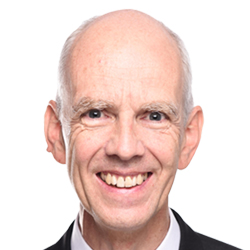Speaker Bio & Abstract

Oracle
Germany
BiographyHans Viehmann is responsible for Oracles Spatial and Graph technologies in the database as well as Oracle Big Data Spatial and Graph and the associated cloud services as Distinguished Product Manager.
He studied Physics at Hamburg University and Imperial College, London, and started his career in Research with the prestigious Max Planck Gesellschaft before joining ORACLE over twenty years ago. He has been working on GIS Systems, Spatial Databases and Spatial Data Infrastructures since the mid-Nineties and turned Spatial and Graph database sales into a sustainable business for Oracle Germany over the following years. After various positions in Presales Management, he joined the Product Management Team in 2011 and since then acts as the representative of the Oracle Spatial and Graph Development Team across Europe, Middle East and Africa. In this role, he is responsible for key projects and strategic partnerships, marketing activities, as well as internal awareness around the Location Products and Graph Databases/Graph Analysis within ORACLEs various regional organizations and business units. He is a regular speaker at conferences and user group events in the region and acts as the Oracle liaison to Spatial and Graph Special Interest Groups (SIGs) in several countries. He also serves on the Advisory Board of InGeoForum, Germany.
AbstractFor a Smart City to be sustainable, it is crucial to have a comprehensive understanding of all processes related to demand and consumption of resources. For that purpose, an IT platform is required which can manage all the raw data that is constantly created in such an environment, be it by members of the administration or by citizens or be it by sensors or other devices on the Internet of Things. Location information is an integral part in the raw data and must be dealt with, no matter how large the data volume and independent of whether it is positional information, 3D objects, georeferenced raster imagery, terrain models, or point clouds.
In this short presentation, we will show how an integrated cloud platform for spatial data processing can address these challenges. We will be using 3D city models as an example of how geospatial data provide context for decisions on resources in a smart city and we will briefly touch on the possibility of using additional pre-built capabilities of the cloud platform for sensor data management, machine learning, linked data publishing and blockchain integration.